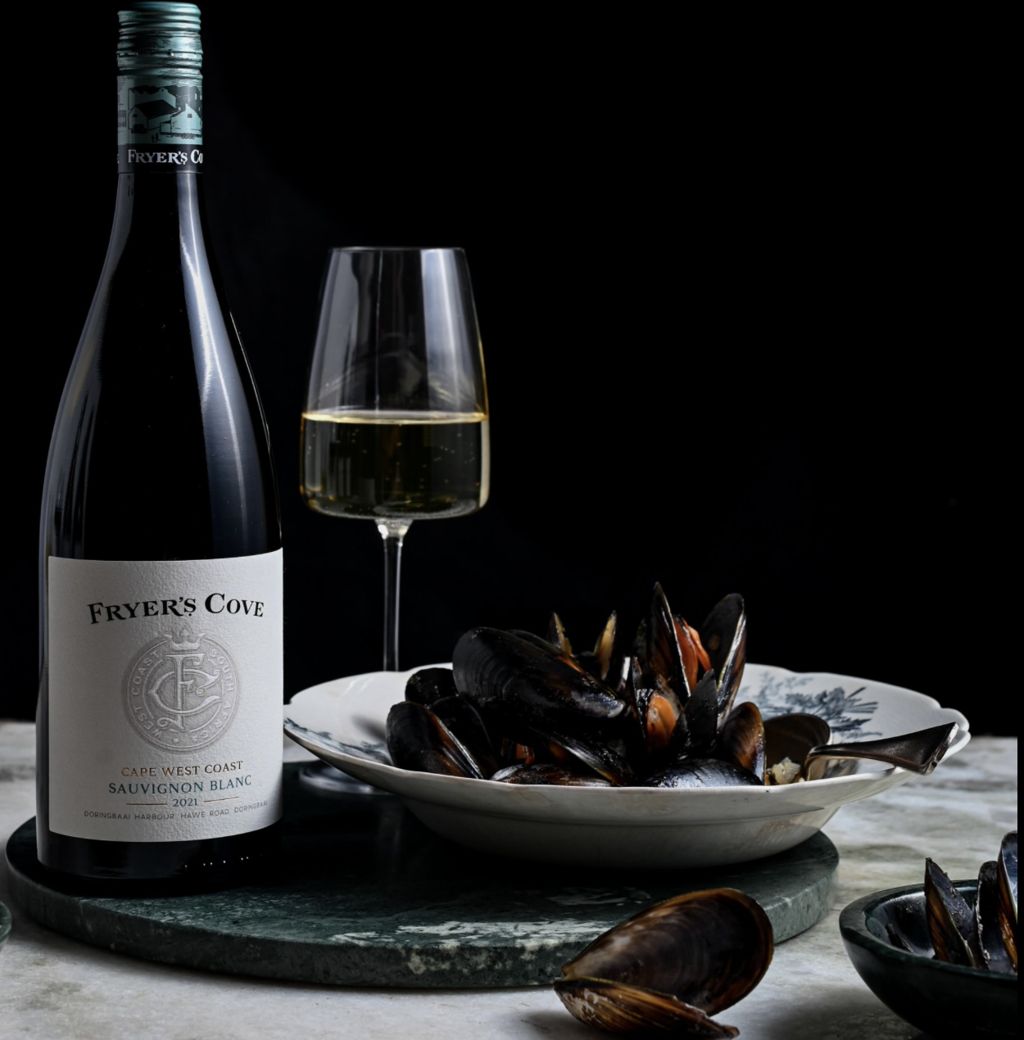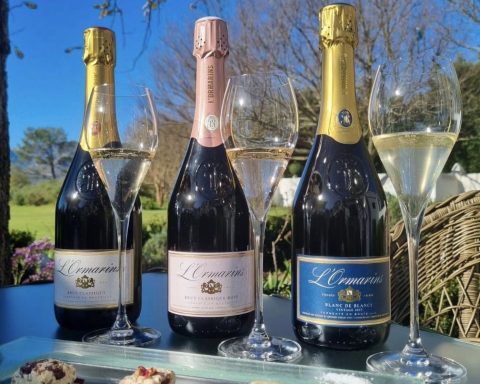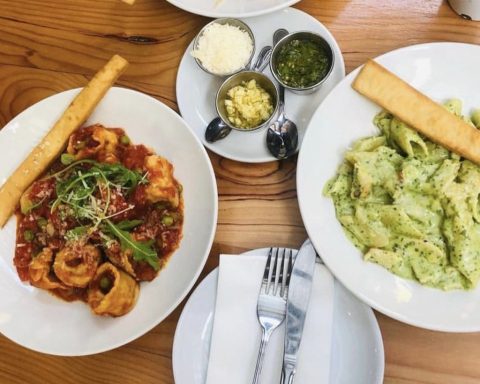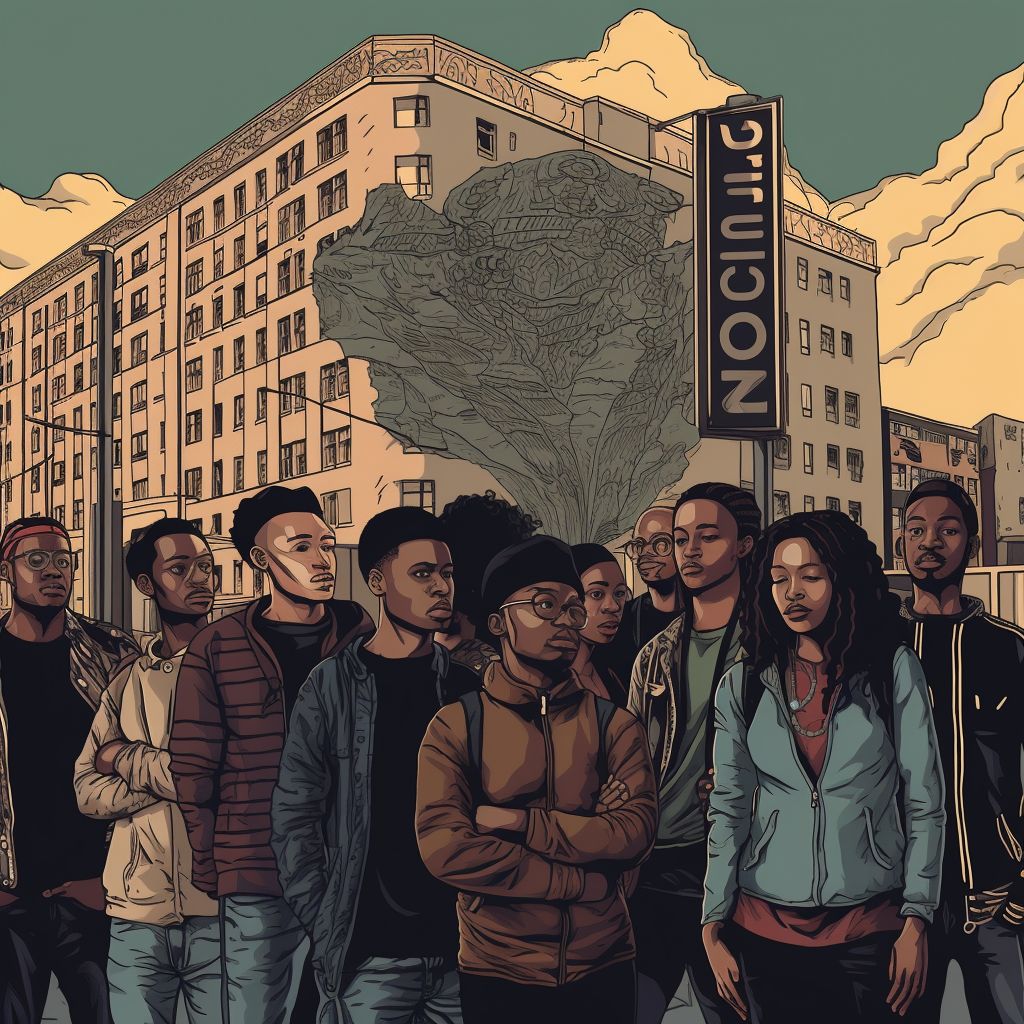Are you a wine lover looking for a unique wine-tasting experience? Look no further than Fryer’s Cove Vineyard, located in the charming West Coast town of Doringbaai. Originally a crayfish-packing factory dating back to 1925, the farm is now home to the only vineyard within the Bamboes Bay ward, making it something special.
A Vineyard by the Atlantic Ocean
What sets Fryer’s Cove Vineyard apart from other wineries is that it is the only vineyard in the world closer to the Atlantic Ocean! The sea breeze and the sound of the waves crashing against the shore undoubtedly enhance the wine-tasting experience, not to mention their hand in the unique terroir of the wines produced here.
Wine-Tasting Venue
The wine-tasting venue is inside the old fish factory, where you can sit and enjoy a tasting or soak up the sun next to the jetty. Fryer’s Cove produces six cool-climate wines, namely sauvignon blanc, pinot noir, and Shiraz, under the helm of winemaker Liza Goodwin, under the Doringbay and Bamboes Bay ranges.
The Jetty Restaurant
The in-house Jetty Restaurant, run by community members as part of Fryer’s Cove’s upliftment project, serves up a delectable array of West Coast cuisine, which pairs beautifully with the cool-climate wines and seaside views. The menu boasts fresh seafood, including oysters, snoek cookies (fish cakes), pickled fish, roosterkoek, freshly caught linefish, tender calamari, and even abalone. On summer days, the restaurant even offers a proper fish braai on the jetty, where you can enjoy your meal as the waves crash.
Seaside Views
Apart from the seafood and wine, Fryer’s Cove is known for its stunning ocean and harbor views. The venue is a photographer’s paradise, offering endless photo opportunities with its old buildings and structures. Besides wine tasting and seafood, you can fish for clips off the jetty or relax and take in the beautiful surroundings.
Visiting Fryer’s Cove Vineyard
Fryer’s Cove Vineyard is open from Wednesday to Sunday, from 9 am to 6 pm. If you plan to visit during peak season or on weekends, make a booking. The venue is family-friendly and wheelchair accessible, with vegetarian and vegan options available.
Contact Information for Fryer’s Cove Vineyard
- Address: Portion #1 of the Old Fish Factory, Hawe Road, Doringbaai
- Working Time: Monday-Sunday, 10 am to 6 pm
- Website: Fryer’s Cove Vineyard
- Phone Number: +27 27 215 1092
Immerse yourself in the unique experience that Fryer’s Cove offers, where you can taste the grapes’ saltiness and feel the Atlantic Ocean’s cold breeze. Remember to take a light jacket or something to keep warm, as the wind can get chilly even on hot days. Come and experience Fryer’s Cove Vineyard, where the ocean and wine meet perfectly harmoniously.












